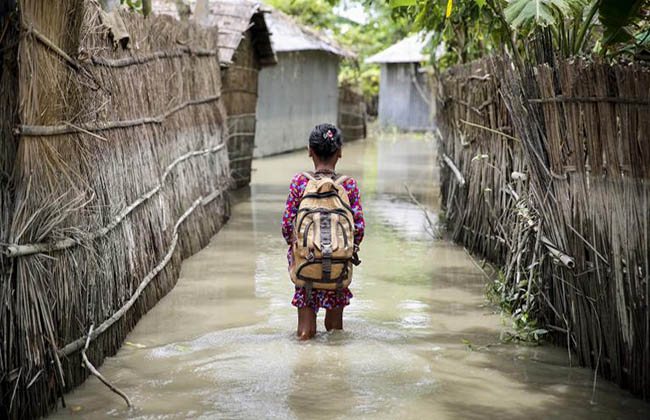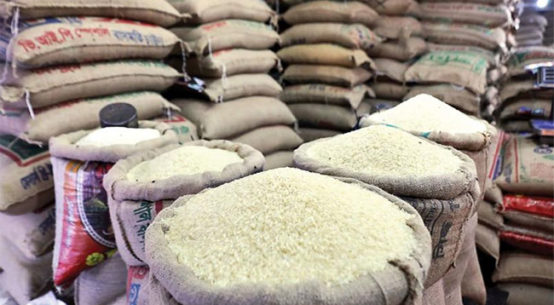
Although climate change is a global problem, the least developed countries, including Bangladesh, are at risk of major disasters. The adverse effects of climate change fall mostly on poor women and children. Eighty per cent of the people affected by climate change are children. In this regard, Bangladesh is one of the most vulnerable countries in the world.
According to a recent report published by the United Nations International Children’s Emergency Fund (UNICEF), Bangladesh is one of the four countries in South Asia where children are at risk of climate change the most. The negative effects of climate change are hampering children’s health, education and safety. It is needless to say Bangladesh has always been known as a country prone to natural disasters. Floods, storms and tidal surges are common occurrences every year. The number of and the damage caused by natural disasters have increased in recent years. According to experts, the main reason for the increase in natural disasters is climate change. And the UNICEF report is a glaring example of it, which highlights a very worrying reality.
Climate change and environmental degradation undermine the rights of children, especially the disadvantaged section. Although the coastal people are exposed to various risks during the disaster season, their biggest concern is with their children. Children have a higher risk of contracting various life-threatening diseases than adults do as they have less immunity and ability to adapt to climatic problems. Children of disaster-affected families are at risk of suffering from long-term malnutrition. Multiple studies have shown that the rate of giving birth to normal babies is declining in the southwest region due to increased salinity. They are coming into the world with some forms of abnormality. It is noteworthy that Bangladesh is working to address the risks of climate change by setting up a fund. This effort of the government is very much positive. Besides, Bangladesh has emphasised global initiatives in various international discussions and meetings in this regard.
According to the recent UNICEF report, water and airborne diseases, malnutrition, deaths and injuries during disasters are on the rise among children due to climate change. Children’s schools are being closed due to floods. Families are losing their livelihoods and taking refuge in urban slums where they are subjected to violence, exploitation and torture. This UNICEF report reflects the real situation of our country, showing how acute and staggering our problem is. However, we have no scope to sit idly without addressing these problems. Efforts should be made to address the risks as much as possible through national initiatives. Due to climate change, there are fears of the occurrence of major storms, floods, soil salinity, tidal surges and even droughts, heavy rains and the loss of large tracts of coastal areas. If this happens, there will be a catastrophic situation in the country. Besides, Bangladesh is at the forefront of the global climate risk index. It is one of the countries that are most affected by climate change. The issue is not one that we may avoid. In this case, the government must take effective measures to protect the children and women. The issue needs to be included in the government’s climate change strategy and action plan. The plan is to identify areas based on the needs of the poorest and most vulnerable women and children and increase investment there.


